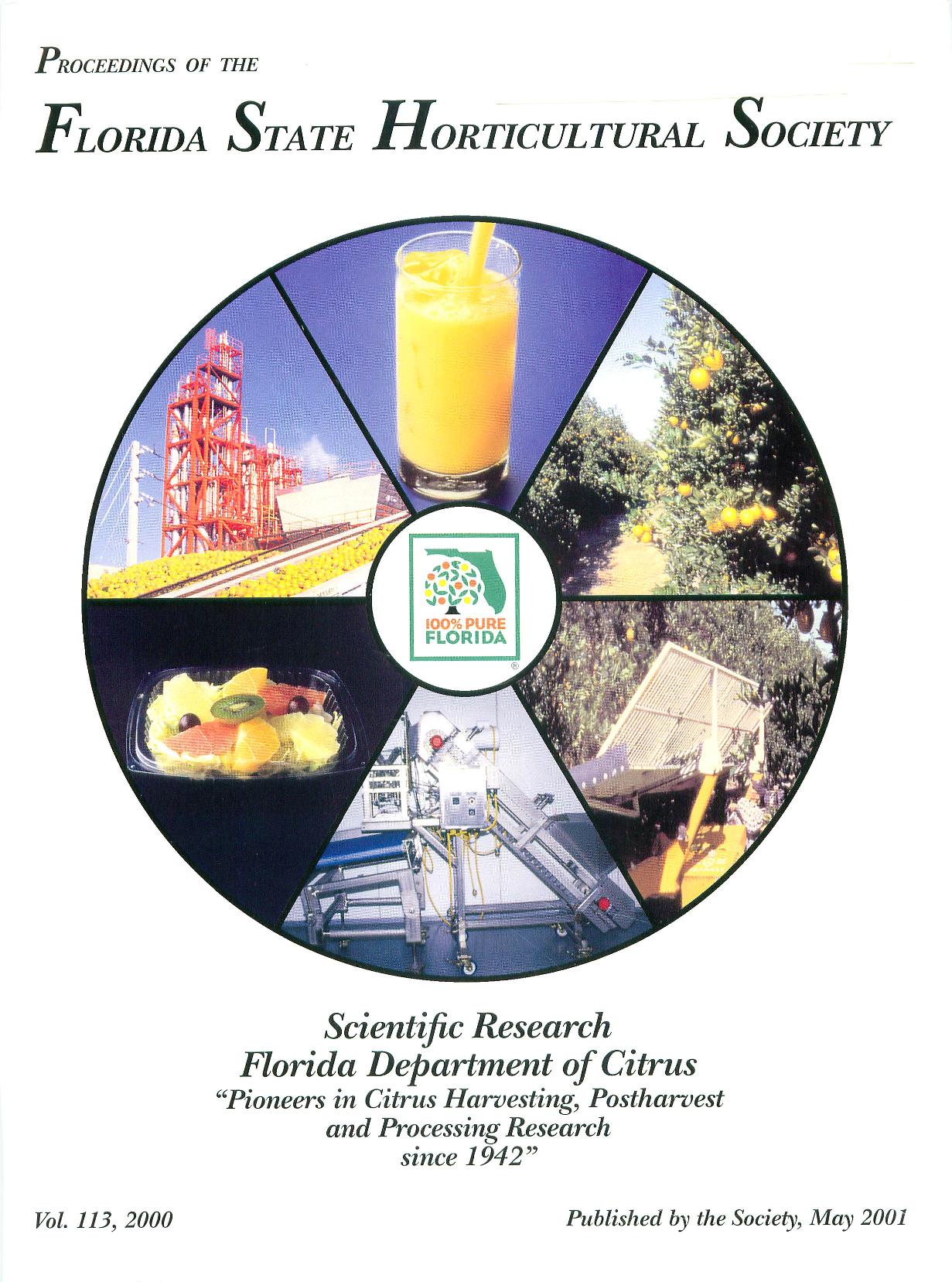Vegetable
Abstract
'Beit Alpha' cucumbers (Cucumis sativus L.) are commonly grown in protected structures in the Middle-East and Israel, and are thus adapted to the warm climates of Florida. Traditionally, greenhouse cucumber cultivars grown in the U.S. are Dutch-types. Six Beit Alpha cultivars were compared to three Dutch-type cultivars over three seasons in Gainesville, FL. Seedlings were transplanted into perlite bags on 31 March 1999, 30 September 1999, and 16 February 2000 and were grown in a double layer polyethylene-covered green house with passive ventilation. All six Beit Alpha cultivars produced more early and total marketable yield in all seasons than the Dutch cultivars. Total marketable fruit numbersamong all Beit Alpha cultivars were greater in the spring than in the fall. Numbers of Dutch-type fruit produced were similar among cultivars in all seasons. Cull weight was greater in the spring than the fall, but was not significantly different among cultivars. Fruit length and diameter were significantly different between seasons and cultivars. The Dutch types were more wrinkled than the Beit Alpha types and uniformity was the same among all cultivars. Powdery mildew ratings were similar for both seasons when chemical fungicides were used. When powdery mildew was present and chemical control was not used, the Beit Alpha cultivar 'Alexander' and the Dutch cultivars 'Bologna' and 'Kalunga' had better tolerance than all other Beit Alpha cultivars. Beit Alpha cucumbers can be successfully grown year-round in Florida and offer an exciting new greenhouse crop for Florida producers. They will be a strong competitor for the traditional Dutch-type greenhouse cucumber once introduced in the market place.

